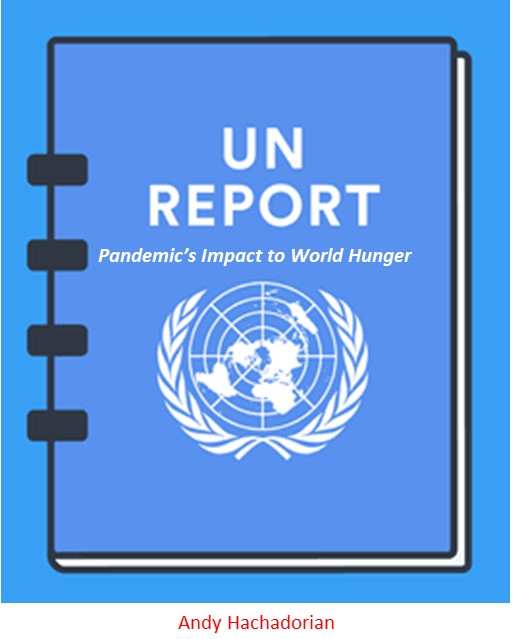“Our worst fears are coming true. Reversing such high levels of chronic hunger will take years if not decades.” — World Food Programme chief economist Arif Husain.
Almost a year and a half ago, many of our top concerns included making sure we all had enough toilet paper, disinfectant wipes, bleach and of course, masks. We all took to doing what Americans do best – panic. This was no surprise. Mention snow on the 6 p.m. evening news and every grocery store sells out of bread, eggs, and milk.
But when this nation – and the rest of the global population – were faced with a pandemic not seen in more than 100 years, we did not know how to react. We took to making sure WE were taken care of. Not so much our elderly neighbors, friends, or others outside of our sphere.
And those around the globe who were already facing severe hunger crises? Out of sight, out of mind.
A U.N. report released on July 12 that examined hunger and the pandemic, food insecurity, and the crisis of starvation especially among children should give us reason to pause.
World hunger and malnutrition levels worsened dramatically last year, with most of the increase likely due to the COVID-19 pandemic.
The number of undernourished people rose to about 768 million – equivalent to 10 percent of the world’s population and an increase of about 118 million versus 2019, said the report published by UN agencies, including the Food and Agriculture Organization (FAO), the World Food Programme (WFP), and the World Health Organisation (WHO).
That’s 10 percent of the world’s population. Nearly a billion people undernourished. Of the victims, children remain the ones who pay the highest price, the report said, with more than 149 million less than the age of five estimated to be afflicted with stunted growth.
Hunger around the U.S. and the rest of the world is not a new problem. It’s the reason that groups like F4 came to be. If citizens have learned anything in this country, it’s that we can’t and shouldn’t depend solely on the government – any level of government – to be nimble enough or competent enough to face and solve a crisis like hunger. You doubt that? Let’s review the past 18 months and the debacle getting COVID vaccines distributed.
So what can we do to solve the hunger crisis? It will take the government but more likely groups like F4 around the U.S. and the world to take the lead. Volunteers with boots on the ground who know the best distribution models, processes that work, and plans that don’t involve politicians. It’s our best choice.
If there is anything that should make you worry about this crisis, it’s the quote from Arif Husain that reversing the levels of hunger could take “years if not decades.” For issues such as hunger or climate change, none of us has that kind of time. The time to act was yesterday. We must act today. The clock is ticking.
Source: https://www.aljazeera.com/news/2021/7/12/un-report-pandemic-year-marked-by-rise-in-world-hunger


Leave a Reply